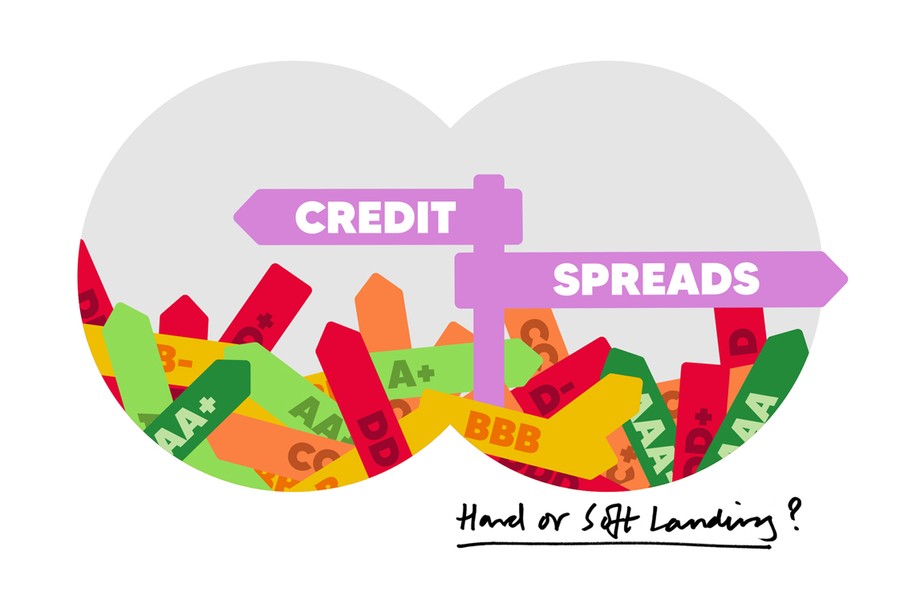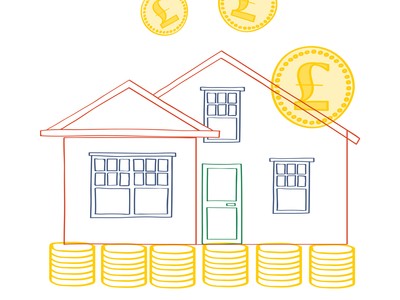Given the 10-year gilt yield currently sits at 4.38%, are credit spreads wide enough to warrant reaching for the extra yield given by investing in corporate bonds?
A ‘credit spread’ is the difference between the yield on a corporate bond and a government bond with equivalent duration. The additional yield from corporate bonds compensates the investor for taking on the additional risks associated with corporate debt compared to sovereign debt, which is often seen as lower risk. The lower the credit rating, the wider the spread and vice versa. For example, the 3-5 year UK Corporate Bond Spread is currently at 1.03% or 103 basis points for AAA-rated corporate debt securities, and 228 basis points at BBB. Credit spreads widen and narrow through time to reflect market views on implied default rates¹, corporate ability to service debt and the attractiveness of owning comparatively lower risk government debt. In 2009, amidst the Global Financial Crisis, the UK 3-5 year spread on A-rated corporate debt reached 800 basis points. In contrast, during 2021 ultra-low interest rates and ample COVID-19 support cash in the economy, we saw the same UK 3-5 year spread on A-rated debt narrow to just 72 basis points or 0.72%.
What do we think of credit spreads right now? First let’s consider the two main widely discussed outlooks for the economy: a hard landing or a soft landing. The ‘hard landing’ view is that the current interest rate hiking cycle being employed by central banks to stamp out persistent inflation has been so aggressive that it causes a deep recession. ‘Hard landers’ would argue that spreads are not wide enough – a deteriorating economy will cause a corporate earnings recession which will lead to a higher rate of corporate debt defaults. As a result, credit spreads would widen due to the perception of increasing corporate risk (corporate yields increase) and greater demand for government bonds as a safe haven asset (sovereign yields decrease).
In contrast, the ‘soft landing’ theory is that central bankers have judged rate rises well enough to dampen inflation and that an elevated R* (real neutral interest rate²) and resilient economy could combine to avoid a deep recession. This scenario would be relatively more favourable for corporate debt than a hard landing, as there would be fewer defaults. ‘Soft landers’ argue that current credit spreads are wide enough and that with the market forecasting interest rate cuts from central banks shortly, no meaningful recession imminent and corporate balance sheets well-fortified, investors should be locking into the yields currently available in the corporate debt market.
At present, credit spreads, particularly investment grade BBB and high yield, appear to be pricing in a soft landing. Spreads are currently narrower than we would expect if a deep recession was expected. With the macroeconomic outlook uncertain and economists split on its direction, time will tell if the corporate bond market has got the soft landing call right.
¹ ‘Default rate’ is the percentage of all outstanding loans that a lender has written off as unpaid after a prolonged period of missed payments.
² The ‘real neutral interest rate’ is an estimated rate of interest (excluding inflation) that exists when there is full employment and stable economic growth.
Illustration by Darren Richards




